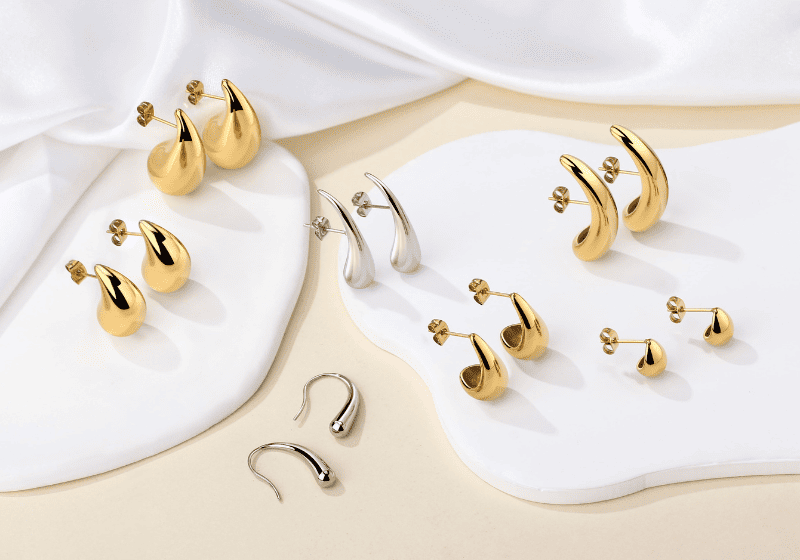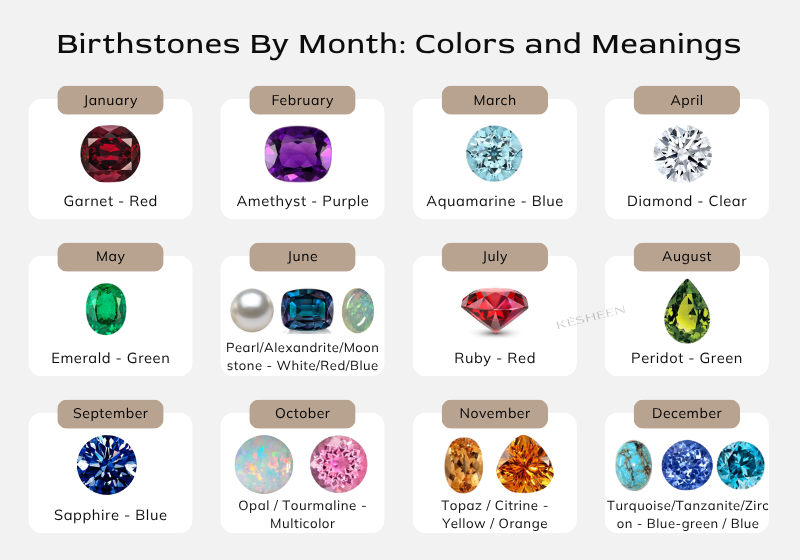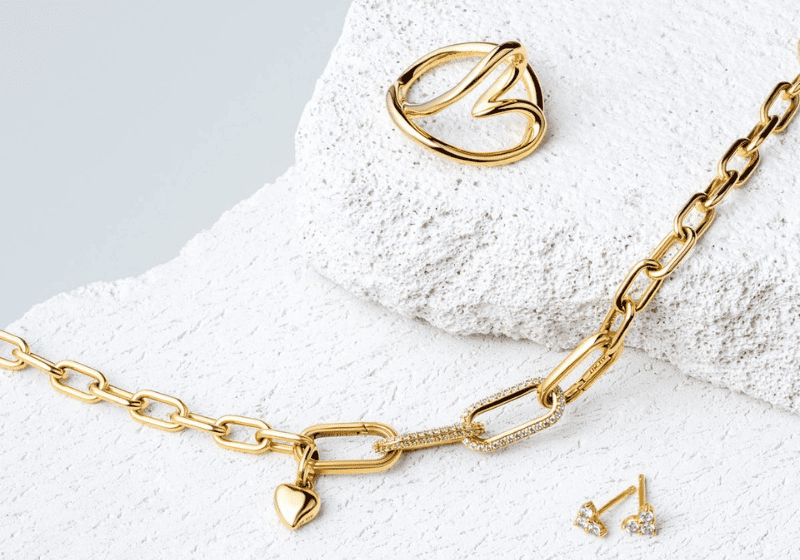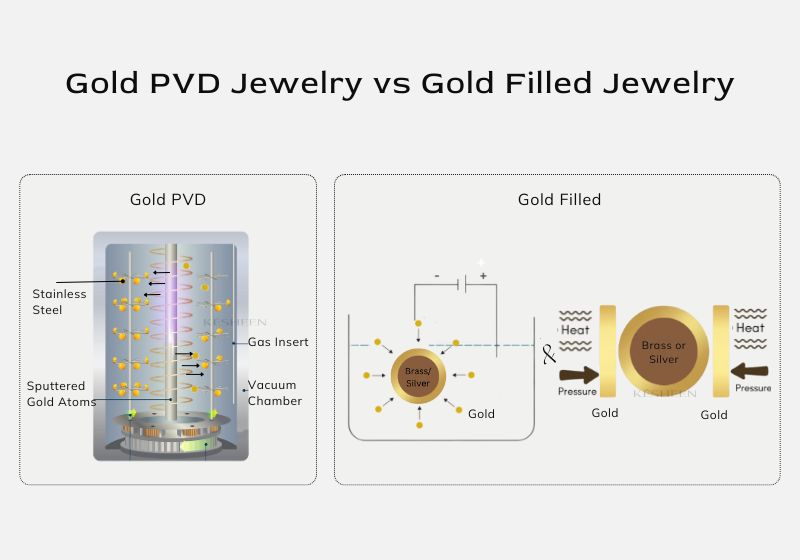Allergies and skin sensitivities are increasingly common, especially when it comes to earrings and jewelry worn close to the skin. A frequent concern is: Is stainless steel jewelry hypoallergenic and safe for sensitive ears?
Yes. Stainless steel jewelry, especially high grades like 304 and 316L surgical stainless steel, is generally considered hypoallergenic and safe for sensitive ears when manufactured to compliance standards.
This article explains what “hypoallergenic” really means, how stainless steel compares with other metals, and what brands need to know before offering jewelry to customers with sensitive skin.
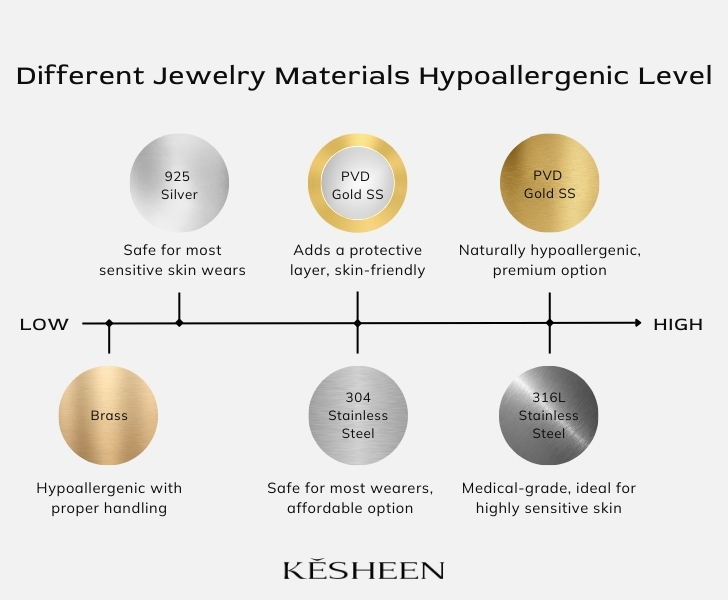
What Is Hypoallergenic Jewelry?
Hypoallergenic jewelry meaning refers to pieces designed to minimize the risk of skin irritation or allergic reactions. These reactions may include redness, itching, or rashes, often caused by certain metals in direct contact with the skin. While not completely allergy-proof, hypoallergenic jewelry is made with safer materials that are less likely to trigger sensitivity.
Does Hypoallergenic Mean Nickel Free?
Is hypoallergenic the same as nickel free? No, hypoallergenic jewelry and nickel-free jewelry are not the same. While the terms are often used interchangeably, they carry different meanings.
Nickel-free jewelry may still contain nickel but in such low amounts that it complies with the Nickel Allergic Contact Dermatitis Policy, releasing only minimal traces safe for most wearers.
Hypoallergenic jewelry, on the other hand, is designed to reduce the likelihood of causing skin reactions. This doesn’t guarantee the jewelry is entirely nickel-free—it simply means a product is designed to pose a minimal risk of triggering sensitivity.
What Makes Jewelry Hypoallergenic? Factors Affecting Hypoallergenic Quality
There are three cogent factors that determine whether a jewelry is hypoallergenic or not. They are:
- Metal Grade & Quality: All metals are not created equally—there are different grades and quality. High-quality metals, like 304 and 316L stainless steel are less likely to cause a reaction. They are not like lower-grade metals, such as 201 and 202 stainless steel that cause skin irritation.
- Plating & Wear: The material used for plating the jewelry can influence its hypoallergenic nature. If the plating layer contains little to no nickel content, it can be hypoallergenic. It even becomes better when palladium (which is 100% nickel-free) is used. Also, the amount of abrasive elements the jewelry is exposed to daily can damage the protective plating layer and increase the likelihood of nickel release.
- Personal Sensitivity: The reliability of a nickel free hypoallergenic jewelry can be determined by how sensitive an individual’s skin is. How everyone reacts to metal allergies varies. While some people are highly sensitive and will react to even trace amounts of irritants, others won’t have any reaction unless there is excessive nickel release.
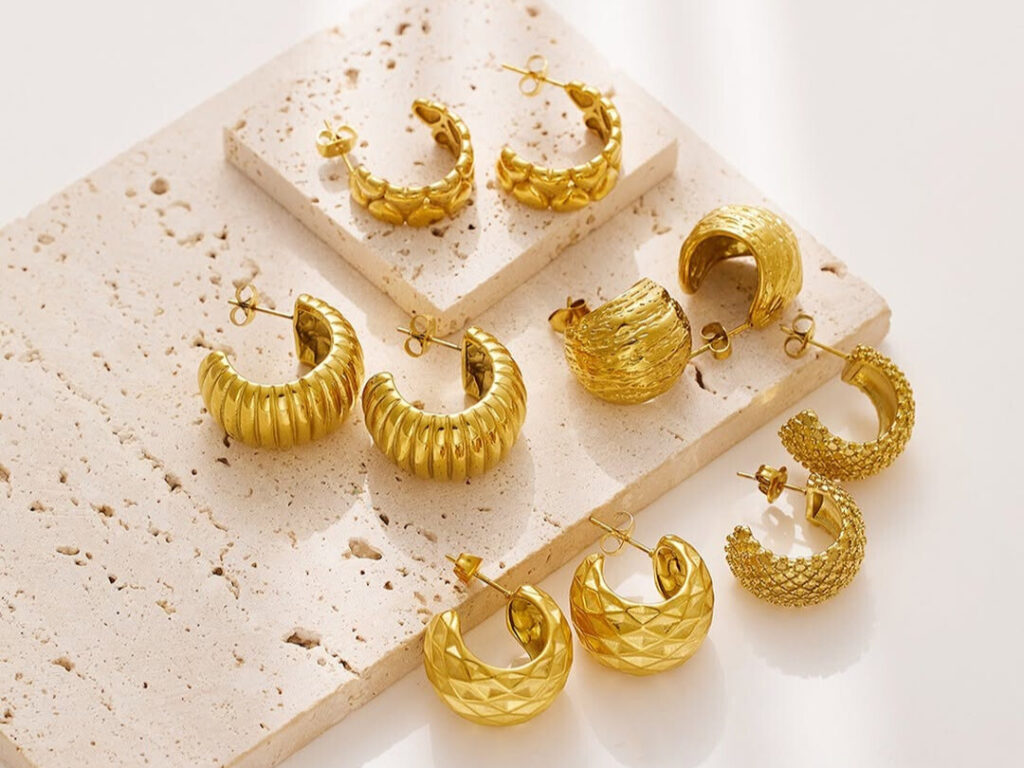
Understanding Stainless Steel and Allergies
Here’s a breakdown of stainless steel composition, which answers the question: is stainless steel jewelry good for sensitive skin and is stainless steel jewelry good for your brand?
- Stainless Steel Composition: Stainless steel is an alloy of iron, chromium, carbon, and other elements like nickel, molybdenum, and manganese. Among all these alloyed metals, chromium stands out for its protection. It makes up at least 10.5% of stainless steel and serves as a protective, non-reactive layer that prevents nickel release.
- The Presence of Nickel: While stainless steel does contain nickel, high-quality grades like 304 and 316L release very little of it. Nickel content is not the same as nickel release. As long as the release remains within regulated limits, stainless steel jewelry is considered hypoallergenic and safe for everyday wear.
| Metal | Hypoallergenic | Hypoallergenic Quality |
| 304 Stainless Steel | ⭐⭐⭐⭐ | Safe for sensitive skin. |
| 316L Stainless Steel | ⭐⭐⭐⭐⭐ | Safe for highly sensitive skin, recommended for earrings products. |
| PVD Gold Stainless Steel | ⭐⭐⭐⭐ | Safe for sensitive skin. |
| 925 Sterling Silver | ⭐⭐⭐ | Safe for most sensitive skin. |
| Brass | ❌ | Not safe without proper handling. |
| Solid Gold | ⭐⭐⭐⭐⭐ | Safe for sensitive skin. |
So, Is Stainless Steel Jewelry Hypoallergenic?
Yes, most stainless steel jewelry, especially higher-grade types like 304 and 316L, is considered hypoallergenic due to their protective composition and minimal nickel release. These grades are widely trusted by both jewelers and wearers with sensitive skin.
304 Food-Grade Stainless Steel
This is a high-quality grade stainless steel that’s largely used for many kitchenware products because of its safe, non-reactive, and corrosion resistance. It’s also used for making jewelry, as it provides a smooth finish and resist tarnishing.
Is 304 stainless steel hypoallergenic? Yes. While it contains nickel, the amount is low and within safety regulations, and tightly bonded within the alloy, thereby reducing the risk of skin irritation for most people.
316L Surgical-Grade Stainless Steel
Is 316L stainless steel hypoallergenic? Yes, it is the “gold standard” for hypoallergenic jewelry. The “L” stands for low carbon, which makes it even more corrosion-resistant and less likely to release nickel when compared to other stainless steel types.
Wondering—is stainless steel jewelry good for sensitive skin or is surgical stainless steel hypoallergenic? Absolutely, when you use 316L stainless steel. Its superior biocompatibility makes it perfect for earrings, piercings, medical implants, and other sensitive parts of the body.
What Other Jewelry Metals Are Hypoallergenic for Earrings?
In addition to 304 and 316L surgical stainless steel, what metals are hypoallergenic for earrings and safe for sensitive skin? They include PVD coated stainless steel, 925 silver and solid gold. Here’a a breakdown:
PVD Coating Stainless Steel
Is stainless steel hypoallergenic for earrings? Yes. But with PVD (Physical Vapor Deposition), the stainless steel metal is enhanced. PVD creates a thin, durable layer that withstands scratches and tarnish. A nickel-free Titanium Nitride (TiN) layer is attached to the stainless steel base, which adds a protective barrier between the skin and the base metal, as well as preserving the color of the jewelry for a long time.
925 Sterling Silver
This is a composition of 92.5% pure silver and 7.5% other metals, usually copper. It contains little to no amount of nickel (the main culprit of metal allergies), which makes it generally safe for most people, but some other people may react to the copper content. Sterling silver with rhodium plating or e-coating adds a protective layer, making it safer for individuals with sensitive skin.
Solid Gold
Solid gold, particularly higher karats like 14K and 18K, are highly hypoallergenic. Basically, the higher the karat, the less alloy it contains, meaning the less chances it contains metals that can cause irritations. Solid gold earrings are not only skin-safe but also luxurious and long-lasting, making them a premium option for sensitive ears.
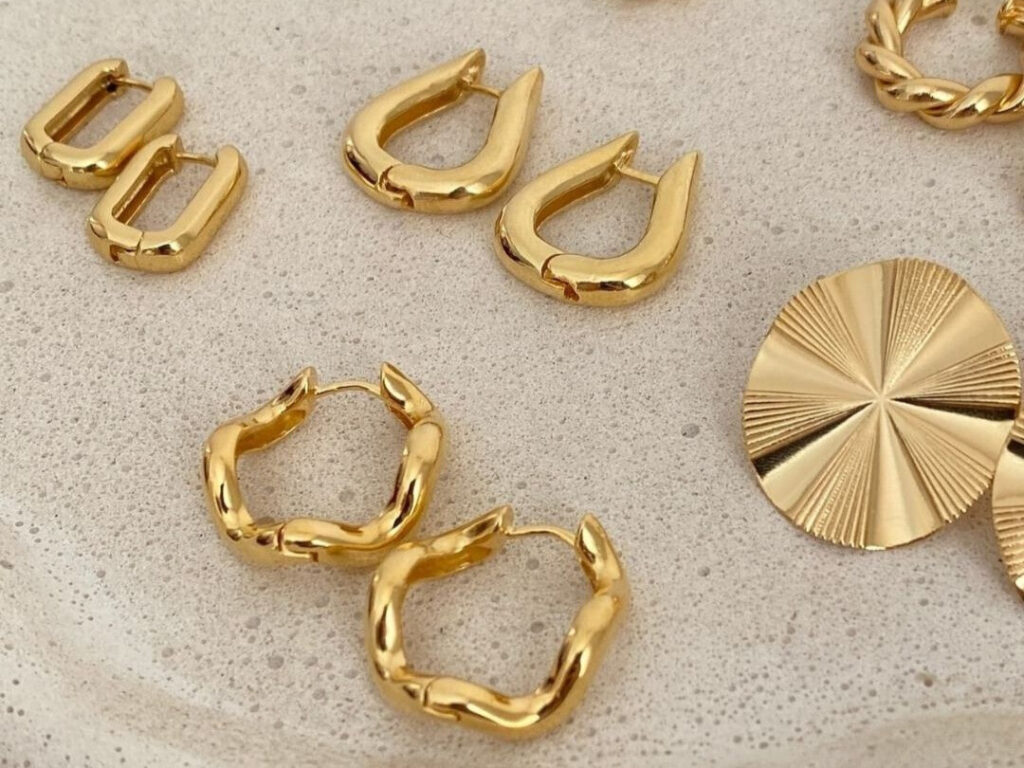
What Are the Best Hypoallergenic Jewelry Metals for Sensitive Skin?
Overall, what is the most hypoallergenic metal for earrings and other sensitive parts of the body? For earrings and other sensitive areas, 316L surgical-grade stainless steel and 925 sterling silver are among the most hypoallergenic metals. Both provide safety, comfort, and style while minimizing the risk of allergic reactions.
- 316L Surgical-Grade Stainless Steel: This is unarguably the best metal for body piercing jewelry. It’s biocompatible and resistant to corrosion, making it the safest jewelry metal. 316L surgical stainless steel has low risk of nickel allergies, ensuring comfort and safety for daily wear.
- 925 Sterling Silver: This metal is lightweight and gentle, and generally hypoallergenic. With minimal to no allergenic content, it offers a stylish and safe option for sensitive skin. Additional protective coatings, such as rhodium plating and e-coating, can further enhance its suitability for sensitive areas, including the ears.
Is Gold Plated Stainless Steel Hypoallergenic?
The hypoallergenic quality of gold plated stainless steel depends on the plating method and thickness. While stainless steel itself is generally safe for sensitive skin, poor-quality plating can compromise this.
High-quality processes, such as PVD coating jewelry, create a durable, nickel-free layer that protects the skin and preserves the jewelry’s color. Cheap or poor plating may contain nickel or wear off easily, exposing the base metal and increasing the risk of irritation. Choosing well-coated gold plated stainless steel ensures both hypoallergenic safety and long-lasting wear.
Does Stainless Steel Contain Nickel?
Yes, most stainless steel contains nickel but in limited quantities. However, this is not a problem when their nickel release is within the safety regulations. High-quality stainless steel releases very little nickel, keeping it well within safety regulations and generally safe for sensitive skin.
Can You Be Allergic to Stainless Steel Jewelry?
Does stainless steel jewelry irritate skin? One of the pros and cons of stainless steel jewelry is that while most people are not allergic to it, there are still a few people who are. Being allergic to stainless steel jewelry depends on personal sensitivity level. Some people have highly sensitive skin and can react to stainless steel. For these people, the safest option is to choose 316L surgical-grade stainless steel jewelry.
Does Hypoallergenic Jewelry Tarnish?
Wondering what jewelry does not tarnish? Hypoallergenic jewelry like stainless steel, PVD coating, solid gold, and 925 silver are your top options.
Tarnishing is a chemical reaction (oxidation) that’s caused when low-quality metals come in contact with moisture, air, or chemicals. It can also be caused by improper handling of the plated layer or scratches. Tarnishing is not directly related to allergies—metal safety and tarnish resistance are separate considerations.
Conclusion
In summary, is stainless steel jewelry hypoallergenic? Yes, stainless is generally considered hypoallergenic and safe for sensitive ears, especially higher grades like 316L. But its suitability also depends on individual sensitivity level. To get high-quality stainless steel jewelry that’s safe for your skin, it’s recommended that you contact a professional custom jewelry manufacturer to eliminate the risk of allergies.
